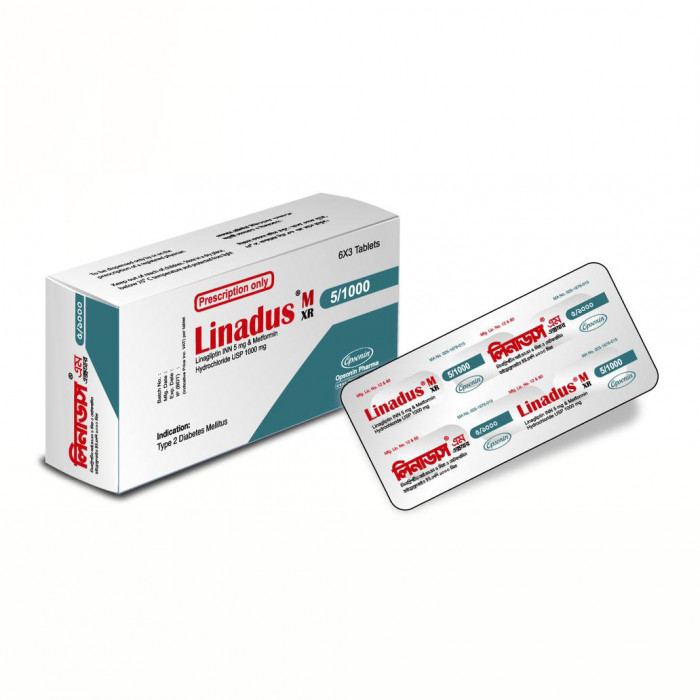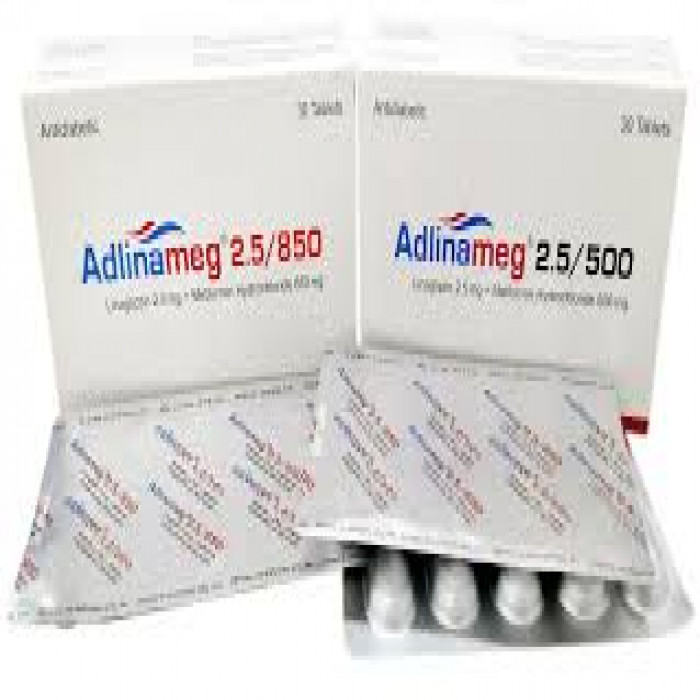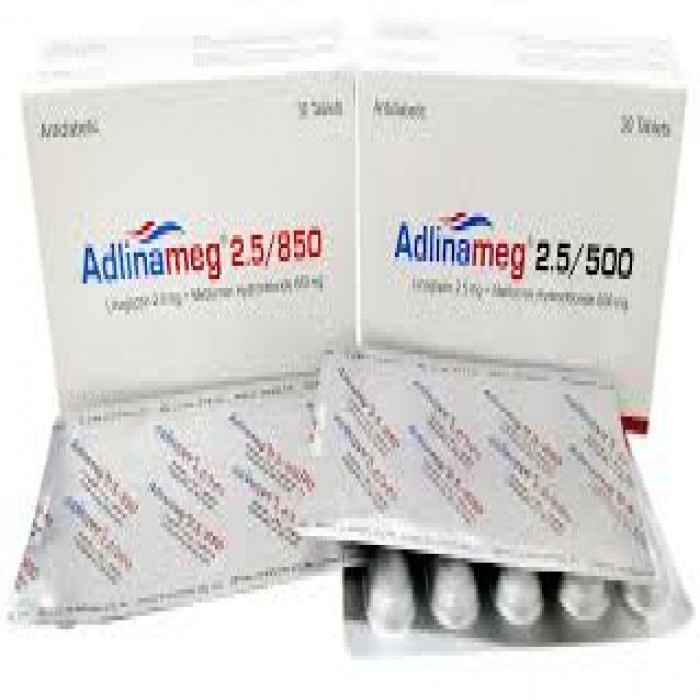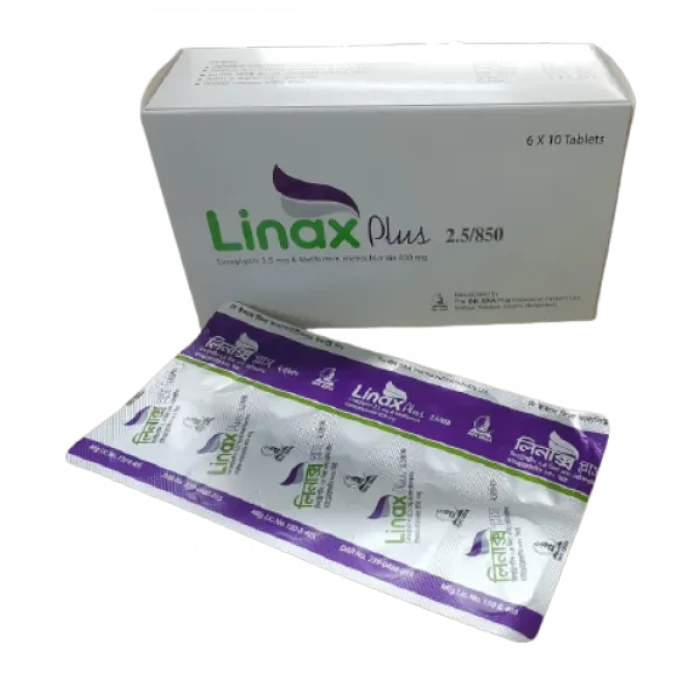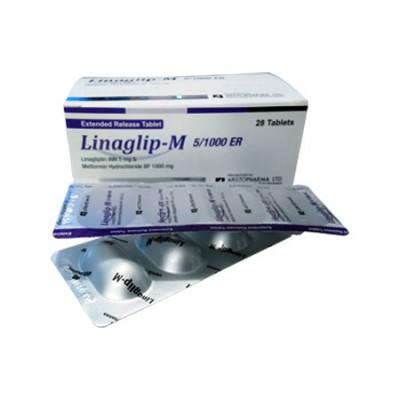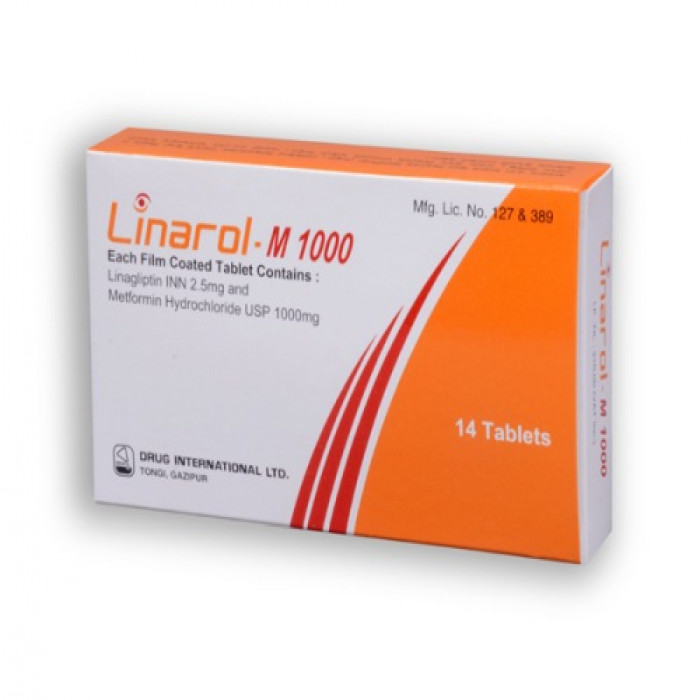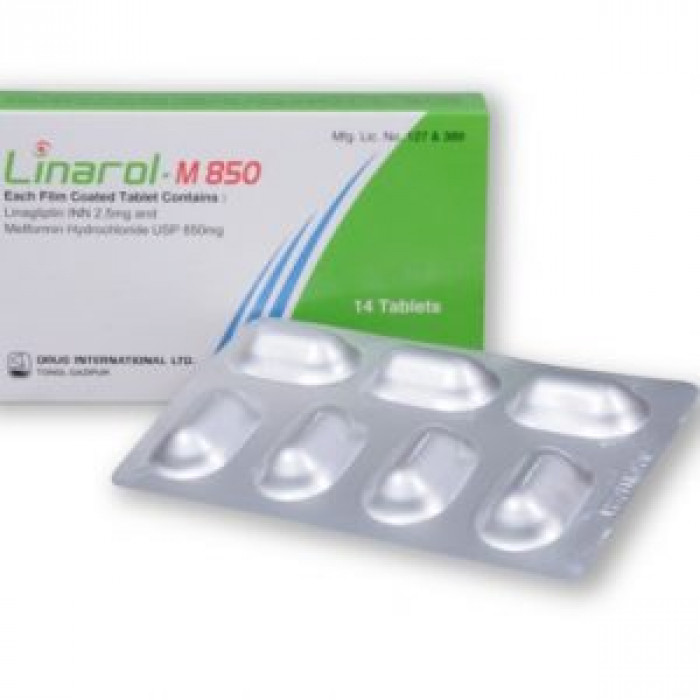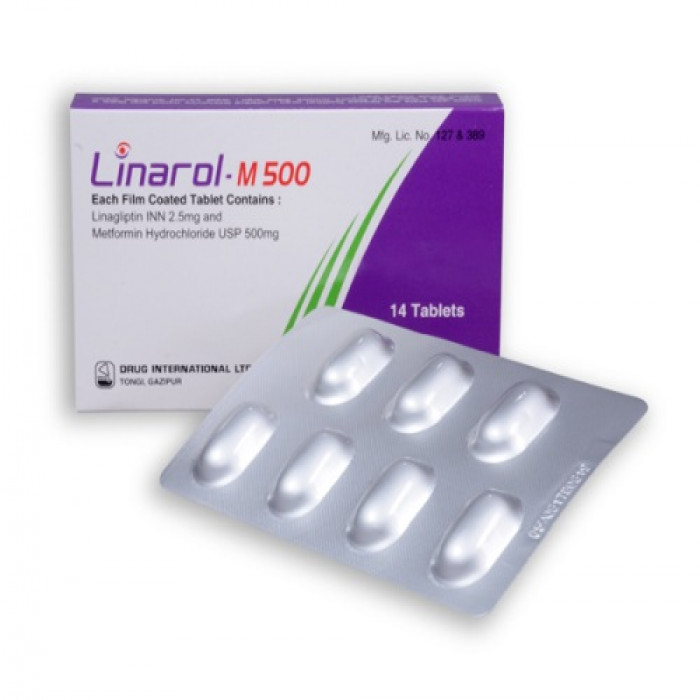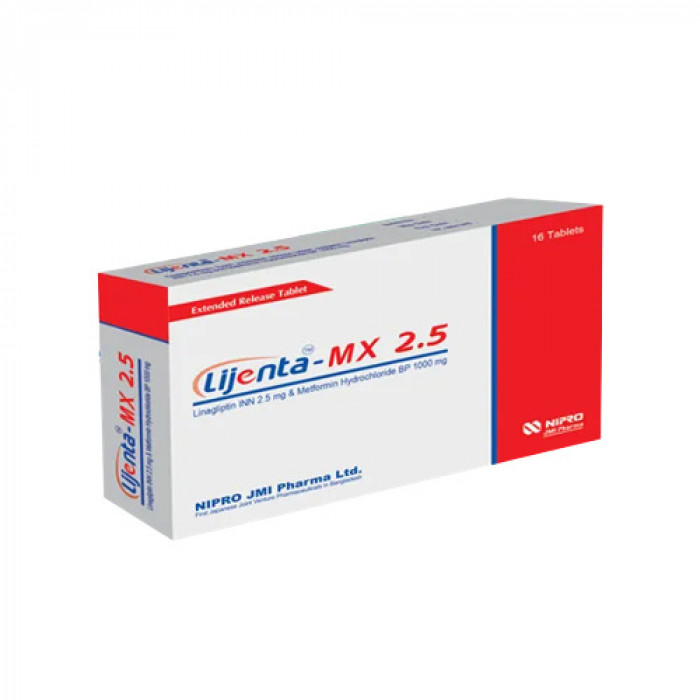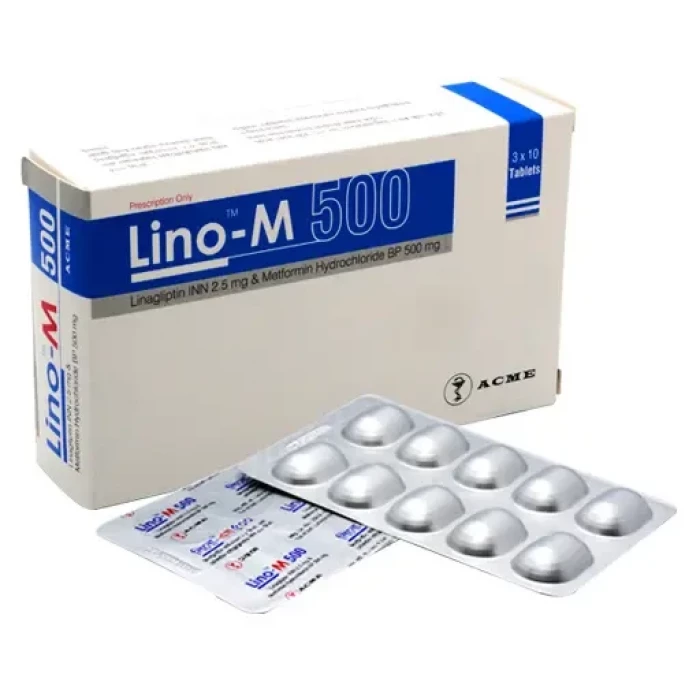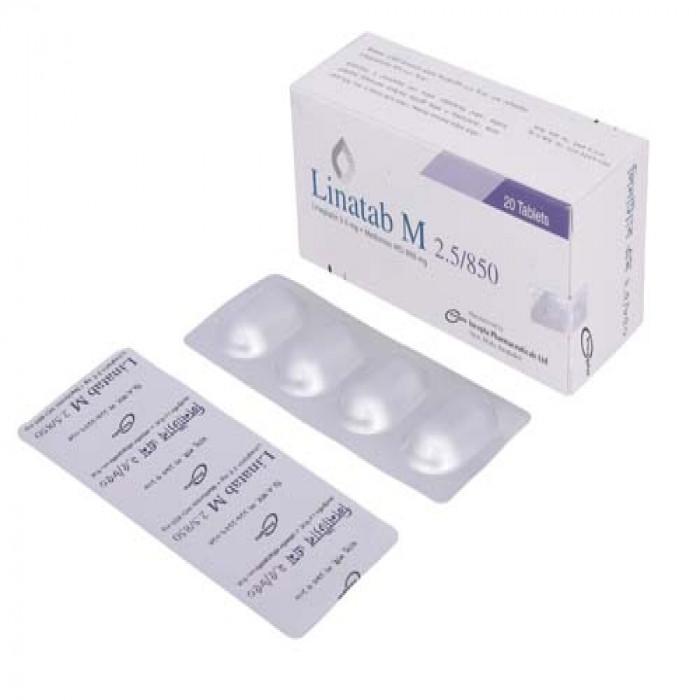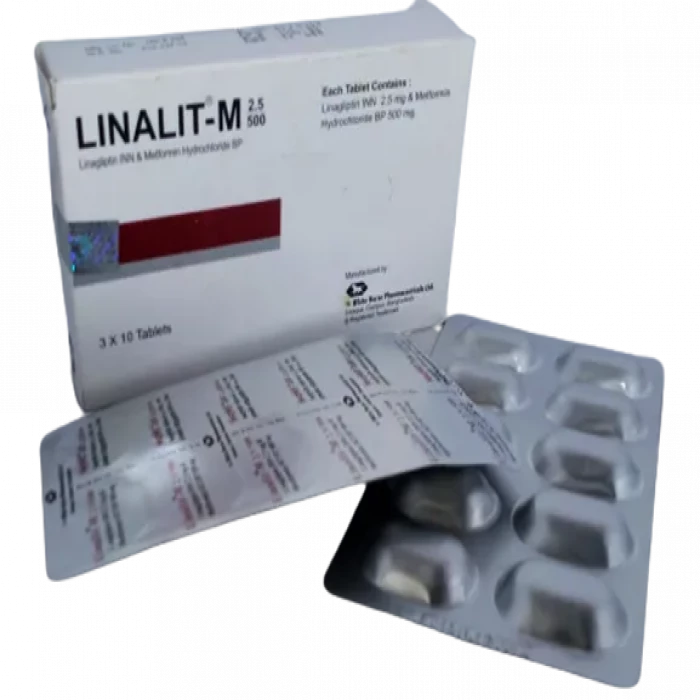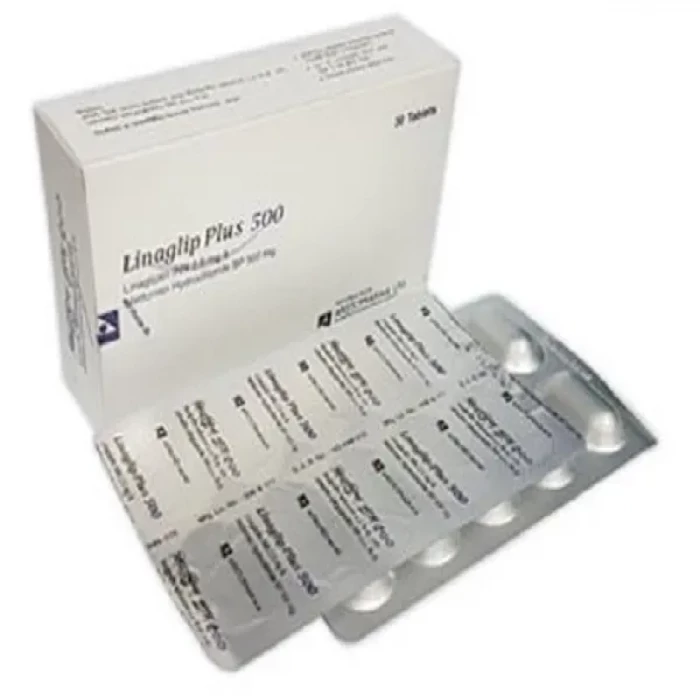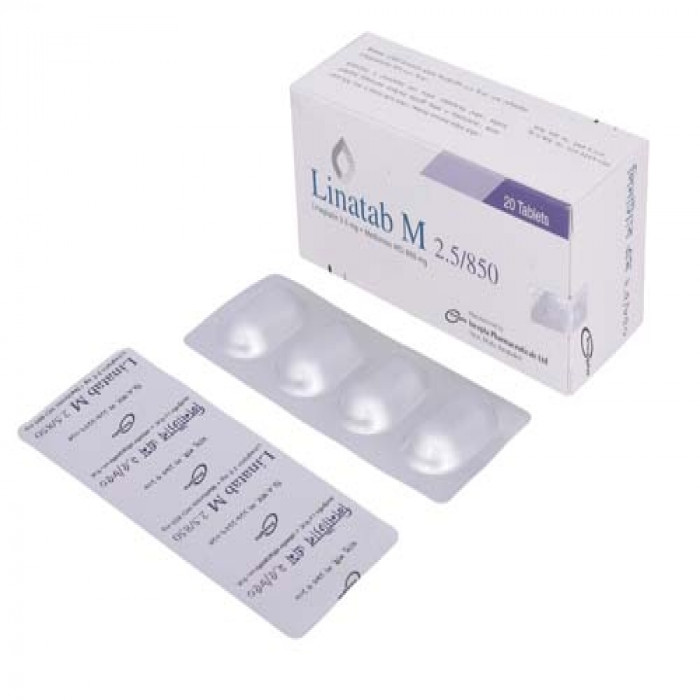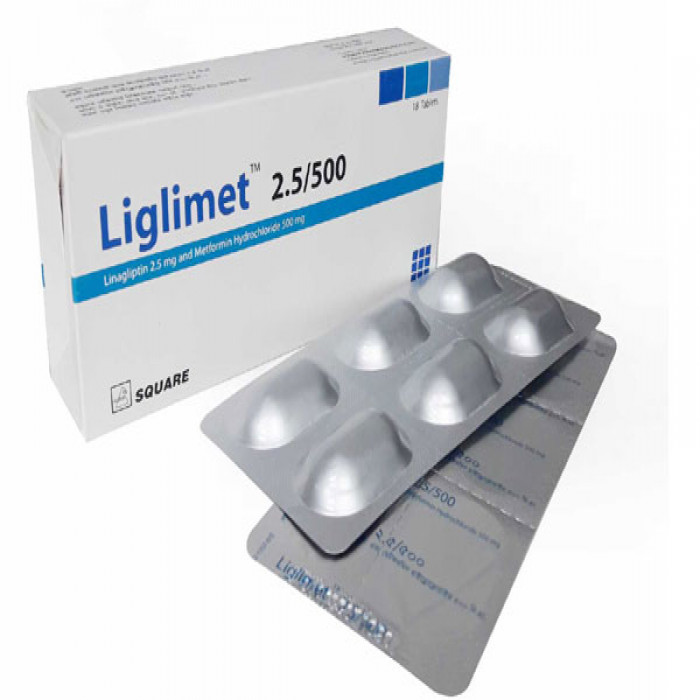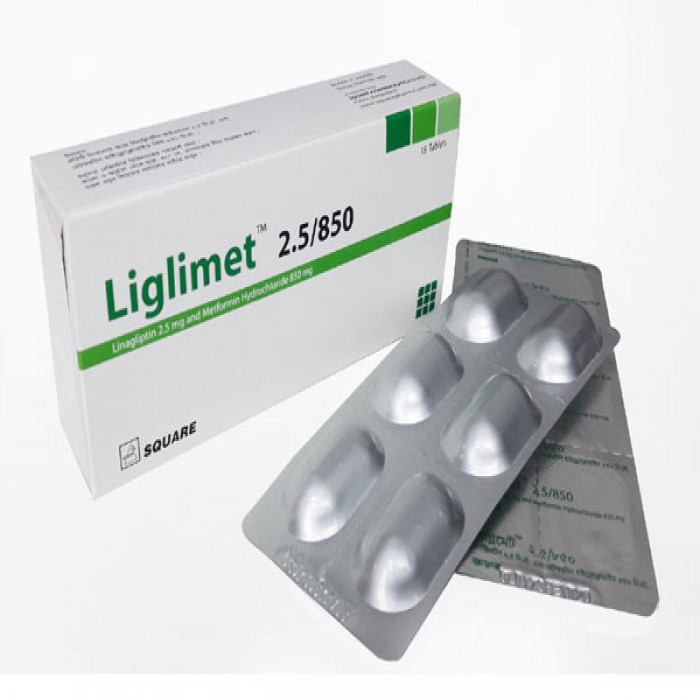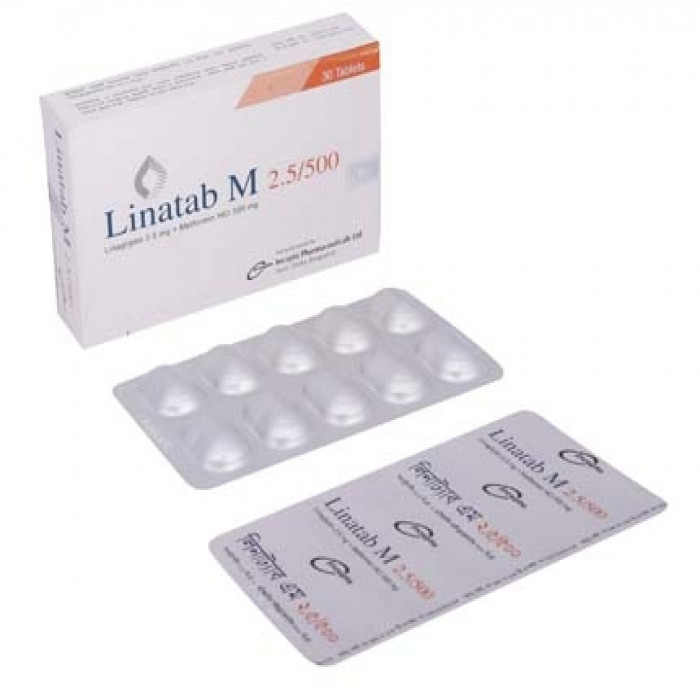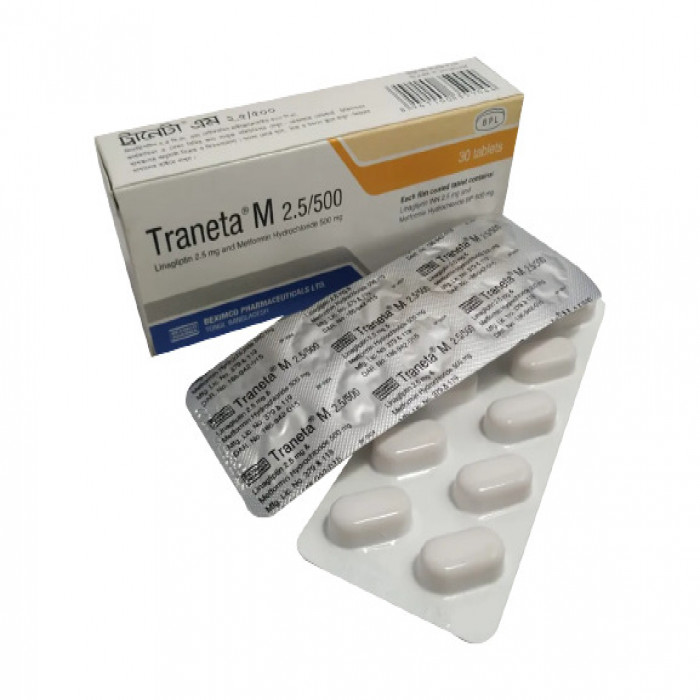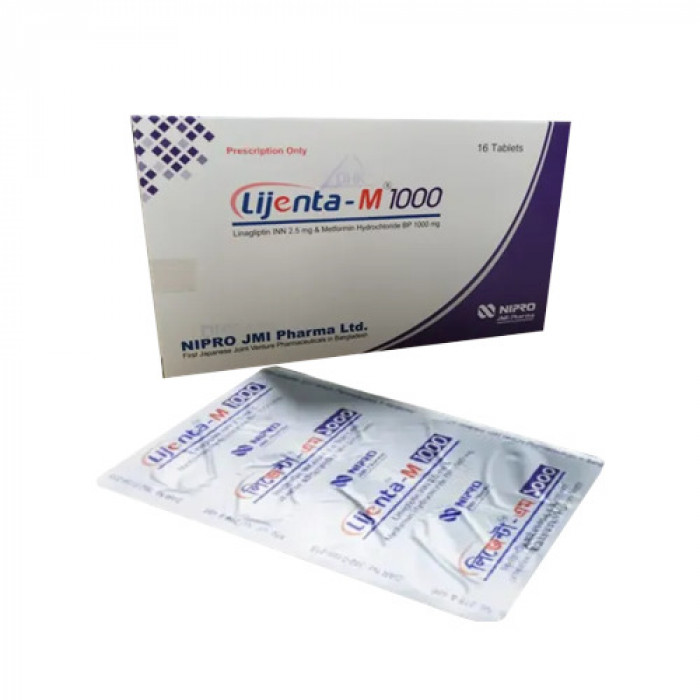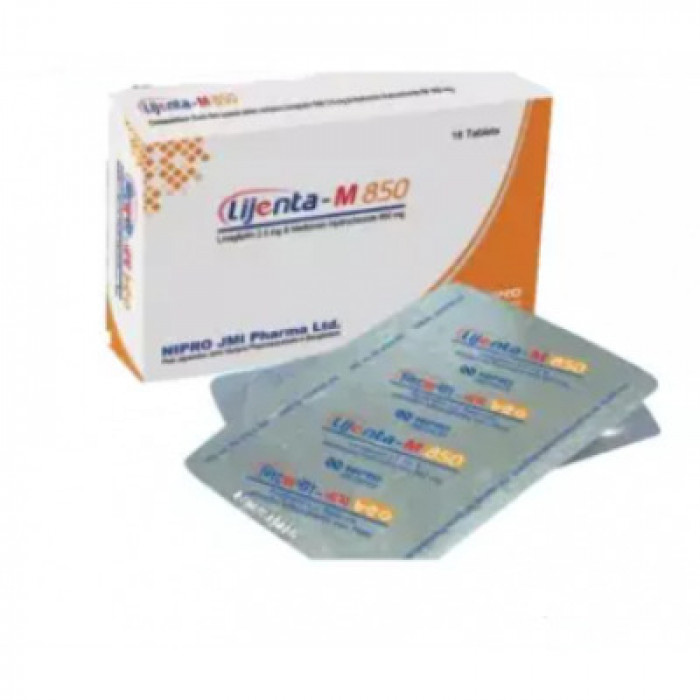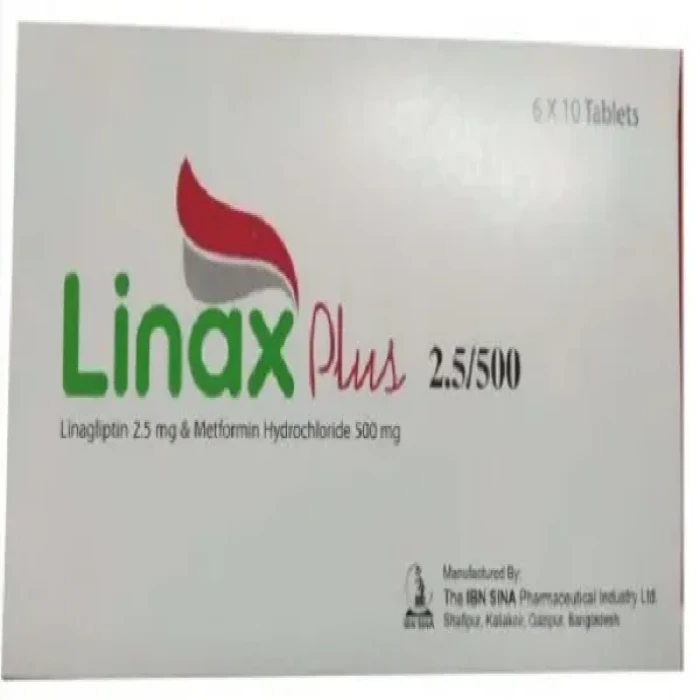
✔ 100% Authentic Product
👁️ Currently Viewing 3045
Linax Plus 2.5/500mg 10pcs
Generic Name: Linagliptin 2.50mg + Metformin Hydrochloride 500mg
Manufacturer Name: Ibn-Sina Pharmaceuticals Ltd
Discount
Price: ৳ 85
MRP:
৳
90
6%
Off

100% Genuine Products, Guaranteed

Safe & Secure Payments, Always

Fast, Secure & Efficient Delivery

Proper Packaging
 Cash on Delivery - All over Bangladesh
Cash on Delivery - All over Bangladesh Regular Delivery - 12-24 Hours, Dhaka City* Charge Tk.39-59
Regular Delivery - 12-24 Hours, Dhaka City* Charge Tk.39-59 Regular Delivery - 24-48 Hours, Other Cities* Charge Tk.99-110
Regular Delivery - 24-48 Hours, Other Cities* Charge Tk.99-110
 ফ্রি ডেলিভারিঃ - ৯৯৯ টাকা+ অর্ডারে, ঢাকা
শহরে
ফ্রি ডেলিভারিঃ - ৯৯৯ টাকা+ অর্ডারে, ঢাকা
শহরে ফ্রি ডেলিভারিঃ - ২৯৯৯ টাকা+ অর্ডারে, ঢাকার
বাহিরে
ফ্রি ডেলিভারিঃ - ২৯৯৯ টাকা+ অর্ডারে, ঢাকার
বাহিরে
100% Genuine Products, Guaranteed
Safe & Secure Payments, Always
Fast, Secure & Efficient Delivery
Proper Packaging
 Cash on Delivery - All over Bangladesh
Cash on Delivery - All over Bangladesh Regular Delivery - 12-24 Hours, Dhaka City* Charge Tk.39-59
Regular Delivery - 12-24 Hours, Dhaka City* Charge Tk.39-59 Regular Delivery - 24-48 Hours, Other Cities* Charge Tk.99-110
Regular Delivery - 24-48 Hours, Other Cities* Charge Tk.99-110 ফ্রি ডেলিভারিঃ - ৯৯৯ টাকা+ অর্ডারে, ঢাকা
শহরে
ফ্রি ডেলিভারিঃ - ৯৯৯ টাকা+ অর্ডারে, ঢাকা
শহরে ফ্রি ডেলিভারিঃ - ২৯৯৯ টাকা+ অর্ডারে, ঢাকার
বাহিরে
ফ্রি ডেলিভারিঃ - ২৯৯৯ টাকা+ অর্ডারে, ঢাকার
বাহিরে
✅ Description:
Indications
Indicated as an adjunct to diet and exercise to improve glycemic control in adults with type 2 diabetes mellitus
Pharmacology
Linagliptin is used to enhance glycemic control in people with type 2 diabetes. Linagliptin is a DPP-4 (dipeptidyl peptidase-4) inhibitor, which is an enzyme that destroys the incretin hormones GLP-1 (glucagon-like peptide-1) and GIP (glucose-dependent insulinotropic polypeptide). Thus, linagliptin raises the concentrations of active incretin hormones in the blood, increasing the release of insulin from pancreatic beta cells in a glucose-dependent manner while reducing glucagon production from pancreatic alpha cells.
Metformin Hydrochloride is an oral antihyperglycemic medication of the biguanide class that is used to treat type 2 diabetes. It reduces both basal and postprandial plasma glucose levels. It has a different mode of action than sulfonylureas and does not cause hypoglycemia. Metformin Hydrochloride reduces hepatic glucose synthesis, lowers intestinal glucose absorption, and increases insulin sensitivity by increasing peripheral glucose uptake and utilization.
Dosage & Administration
Linax Plus 2.5/500 Tablet: The recommended dose of Linagliptin 2.5 mg & Metformin 500 mg twice daily.
Linax Plus 2.5/850 Tablet: The recommended dose of Linagliptin 2.5 mg & Metformin 850 mg twice daily.
Linax Plus 2.5/1000 Tablet: The recommended dose of Linagliptin 2.5 mg & Metformin 1000 mg twice daily.
Linagliptin & Metformin combination tablets can be taken with or without food. No dose adjustment is required for renal or hepatic impairment.
Interaction
Cationic medicines (amiloride, digoxin, morphine, ranitidine, trimethoprim, and others): These medications may decrease metformin elimination.
P-glycoprotein/CYP3A4 inducer (i.e. rifampin): When used together, the efficacy of this medication may be decreased.
Contraindications
Linagliptin is contraindicated in patients with a history of severe renal impairment, acute or chronic metabolic acidosis, including diabetic ketoacidosis, and a hypersensitivity reaction to linagliptin and metformin.
Side Effects
Linagliptin-The most common side effects of linagliptin are stuffy or runny nose and sore throat. Hypoglycemia may occur when linagliptin is combined with insulin or a sulfonylurea-type drug. Allergic reactions and muscle pain also may occur. Pancreatitis also has been reported. Metformin-The most common adverse reactions due to initiation of metformin are diarrhea, nausea/vomiting, flatulence, asthenia, indigestion, abdominal discomfort, and headache.
Pregnancy & Lactation
Pregnancy: Pregnancy Category C.
Nursing mothers: Caution should be exercised when Linagliptin is administered to a nursing woman.
Pediatric patients: The safety and effectiveness of Linagliptin in patients below the age of 18 have not been established.
Precautions & Warnings
Under certain conditions, too much metformin can cause lactic acidosis. The symptoms of lactic acidosis are severe and quick to appear and usually occur when other health problems not related to the medicine are present and are very severe, such as a heart attack or kidney failure. Symptoms of lactic acidosis include: abdominal or stomach discomfort, decreased appetite, diarrhea, fast or shallow breathing, a general feeling of discomfort, muscle pain or cramping, and unusual sleepiness, tiredness, or weakness.
Be sure to drink extra fluids when you exercise or increase your activity or if you have vomiting or diarrhea.
Pancreatitis may occur while you are using this medicine. Check with your doctor right away if you have sudden and severe stomach pain, chills, constipation, nausea, vomiting, loss of appetite, a fever, or lightheadedness. Need to temporarily stop taking this medicine before you have major surgery or diagnostic tests including procedures that use contrast dye.
It is very important to carefully follow any instructions from your healthcare team about:
Alcohol—Drinking alcohol may cause severe low blood sugar.
Other medicines—This especially includes nonprescription medicines such as aspirin, and medicines for
appetite control, asthma, colds, cough, hay fever, or sinus problems.
Counseling—Other family members need to learn how to prevent side effects or help with side effects if
they occur.
Travel—Keep a recent prescription and your medical history with you. Make allowances for changing time zones and keep your meal times as close as possible to your usual meal times.
In case of emergency—There may be a time when you need emergency help for a problem caused by your diabetes. You need to be prepared for these emergencies. It is a good idea to wear a medical identification (ID) bracelet or neck chain at all times. Also, carry an ID card in your wallet or purse that says you have diabetes and that lists all of your medicines.
Linagliptin and metformin in combination can cause hypoglycemia (low blood sugar). However, this can also occur if you delay or miss a meal or snack, drink alcohol, exercise more than usual, cannot eat because of nausea or vomiting, take certain medicines, or take linagliptin and metformin in combination with another type of diabetes medicine. The symptoms of low blood sugar must be treated before they lead to unconsciousness (passing out). Different people feel different symptoms of low blood sugar. It is important that you learn which symptoms of low blood sugar you usually have so you can treat them quickly.
Storage Conditions
Linax should be stored between 15°C to 30° C.
⚠️Disclaimer:
At ePharma, we’re committed to providing accurate and accessible health information. However, all content is intended for informational purposes only and should not replace medical advice from a qualified physician. Please consult your healthcare provider for personalized guidance. We aim to support, not substitute, the doctor-patient relationship.




